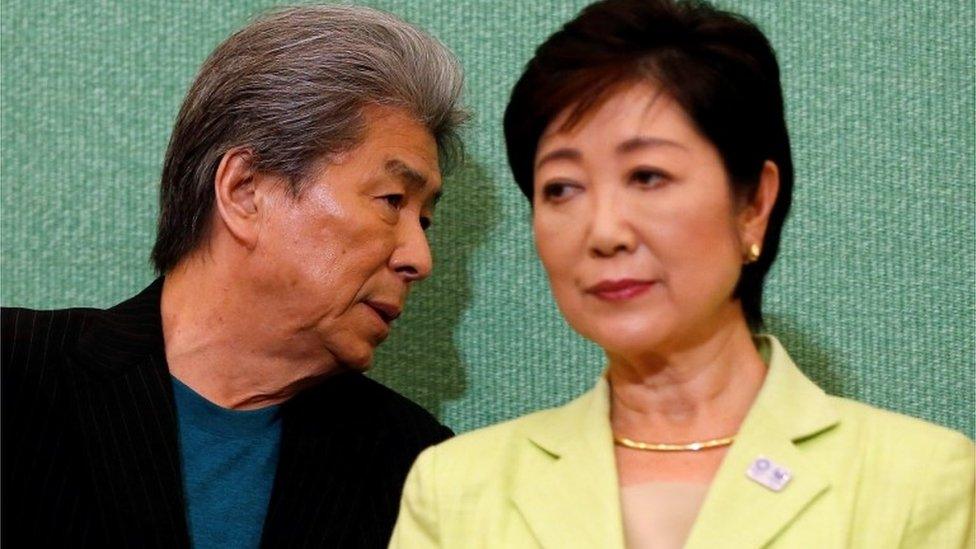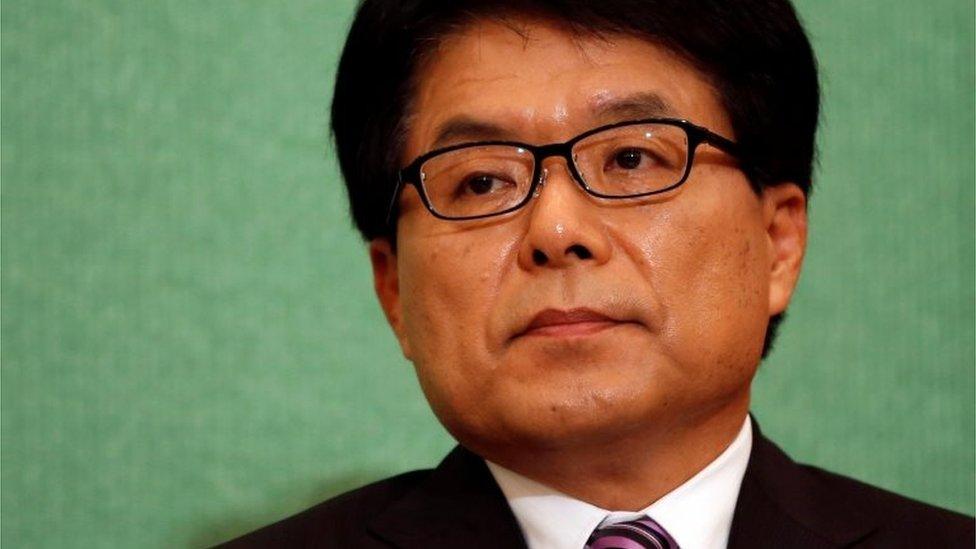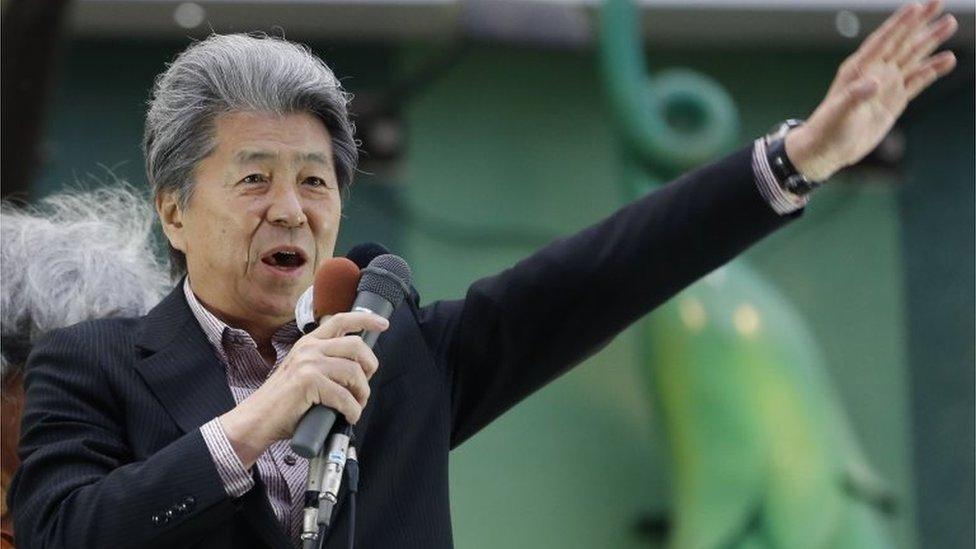Tokyo's ill-tempered election
- Published

Yuriko Koike (r) and journalist Shuntaro Torigoe were among the front-runners for the election
Tokyo has elected its first female governor, one of the biggest jobs in Japan, which this term comes with the added pressure of overseeing the 2020 Olympics preparations. But as Mariko Oi reports, the election campaign has been marred by insult-slinging and allegations of sexism.
"Traitor". "Too much make-up". "Dressed as a woman but a hawkish man".
These are some of the comments that have been flung in what was one of the most negative campaigns of recent years in Japan.
Twenty-one people ran for Tokyo's top job in Sunday's election and former defence and environment minister Yuriko Koike - who was long considered among the front-runners for the job - won.
But unusually, Ms Koike's party - the ruling Liberal Democrat Party (LDP) - chose not to back her, in favour of Hiroya Masuda, a former governor of the Iwate prefecture between 1995 and 2007, who isn't a party member.

Hiroya Masuda had won the support of the influential local LDP membership
The influential local LDP leadership, which was furious with Ms Koike's decision to announce her candidacy without consulting it, had even warned members they risked being ousted if they endorsed anyone but Mr Masuda.
Ms Koike's lead in the polls had annoyed LDP grandees, with former Tokyo governor Shintaro Ishihara, the father of the local LDP federation chairman, telling voters: "We cannot leave Tokyo to a woman with too much make-up."
Her supporters were disgusted by what they called a sexist remark, but after decades in Japan's male-dominated political theatre, Ms Koike laughed it off: "I am used to it."
Harsh comments also came from other female politicians, however, with former Social Democratic Party leader Mizuho Fukushima saying that she wouldn't support Ms Koike simply because she was a woman.
"It's meaningless when she is dressed as a woman but inside is a hawkish man," she said.
This comment drew criticism. It was seen to be insensitive as Ms Koike had her ovaries removed in 1998 because of fibroids.
For journalist Shuntaro Torigoe - running as the joint candidate for several opposition parties - it was not his gender but his age and health that were publicly scrutinised.
He is 76 and a cancer survivor. While also among the front-runners, his critics say his scrawled handwriting and at times rambling and contradictory speeches are proof he is too old and frail to lead. Some, including doctors, even asked if he might have dementia.
Mr Torigoe had said he was fit to govern and was simply being discriminated against because of his successful battle against the disease.
He also faced one of the strongest insults possible in Japan, when Mr Ishihara called him a traitor to the country. This was because Mr Torigoe previously questioned whether it would be worth protecting the uninhabited Senkaku Islands - also claimed by China, which calls them the Diaoyu island - if they were attacked.
Mr Ishihara, who had initiated the national purchase of the islands while governor in 2012, was infuriated by the suggestion.

Shuntaro Torigoe insists he is fit enough to lead the capital
What appears to have affected Mr Torigoe's popularity most, however, is an accusation that he made an inappropriate approach to women.
Mr Torigoe is suing two tabloid magazines for libel, but his decision not to hold a press conference about the accusation, as well as his last-minute cancellation to appear on a debate programme, has led to criticism that he is contradicting his lifelong pursuit of a free press.
As for Ms Koike, observers say the sexist comments may actually have helped her win the election. And that winning may prove to be easier than the tough task ahead.
One of the main concerns in the minds of Tokyo residents was the ballooning budget for the 2020 Tokyo Olympics, which has been hit by other problems including allegations of corruption and plagiarism of original logo designs.
Ms Koike will serve a four-year term. That means she is likely to find herself fighting for re-election while overseeing the Games themselves.
Another major issue she has promised to seriously tackle is the lack of childcare, which would allow mothers to go back to work.
But above all, transparency was crucial in many voters' minds after two past governors, Naoki Inose and Yoichi Masuzoe, resigned over money scandals.